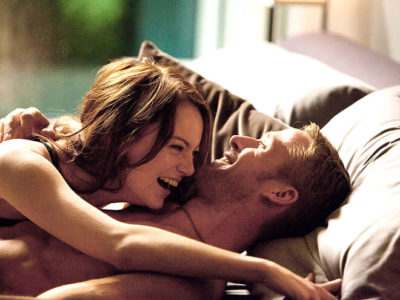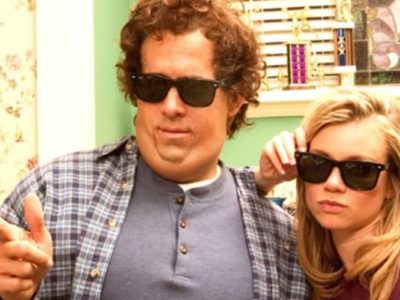The average age for couples to marry from the 1930s to the 1970s was 23 for men and 20 for women, according to a study by Infoplease. Now imagine for a moment that you’ll be married in the next two years. For some college students, the thought of committing to a serious relationship is terrifying, which is why College Magazine—and fellow students—weighed in on the topic to shed some light on why we seem more apt to propose “Netflix and Chill” than an engagement ring.
If we take our generation’s dating style as it stands today and compare it to the 1950s, we’ll find that things have certainly changed over the years. Back then, a date took place in a drive-in movie theater or an ice cream parlor after a cordial meeting the parents-of-the-intended, of course.
If the date went well, and the couple wished to take their relationship to the next level, they declared themselves “going steady,” or “getting pinned” and arranged a schedule for dates and phone calls. “Getting pinned” usually led the couple to the next level: engagement and eventually, marriage.
Now older generations say millenials are “lazy, entitled, confused and addicted to instant gratification.” But the negative characteristics that define our generation are most evident in our dating lives, particularly in the establishment of permanent long-lasting relationships.
To be fair, our whole lives we’ve been discouraged from pursuing serious relationships. “You’re too young to be so serious with [insert significant other’s name],” our parents insisted. At the same time, many have witnessed the failure of relationships firsthand in their own homes, as 44 percent of marriages end in divorce, according to the Washington Post. “[Having seen] the pain our parents went through, we aren’t interested in having long term relationships because it’s only going to crash and burn and end in such heartbreak,” said University of Colorado-Boulder sophomore Joslyn Lafond. With this evidence, why would we ever try to look for something more serious?
Another issue facing romance culture today is that traditional dating doesn’t really exist anymore. If an individual we’re interested in brings too much baggage or too much work to pursue, we adapt to the “there’s more fish in the sea” mentality and move on. “The ‘through the thick and thin’ concept is overshadowed by the realm of possibilities we have with sites like OKCupid, or just with going out and meeting people,” said Florida State University freshman Ciara Foquim. “We’re a generation that doesn’t want to settle. We don’t want to keep around a boyfriend or girlfriend if we foresee any troubles or conflicts.”
However, not every student completely agreed that old-school romance is as dead as parachute pants. “I don’t think our generation has an aversion to long lasting relationships at all,” said Florida State University freshman Chloé Kramer. “The reason people think that our generation is so flippant and nonchalant regarding relationships is that we’re the most publicized generation ever.”
Others said that we still desire romance, but we’re simply too afraid to reach for it. Unfortunately, the mission of finding a significant partner is not a risk-free occupation. Experiences in relationships leave many with scars and insecurities. “I think we all want someone to come home to at the end of day,” said University of South Florida freshman Kathryn Cound. “We want someone to share [our stupid thoughts] with and we know we do, but the society we live in today holds us back with fear of heartbreak and being left in the dust.”
We live in a world where everything we want presents itself to us instantaneously. Want food? Order it online. Want sex without commitment or any inkling of emotional attachment? There’s an app for that and it rhymes with the word “hinder.”
With instant gratification, why put in the time and effort in a relationship when we can painlessly have anything and everything we want? What was once a period of real dates and “going steady” is now an era of confused hookups and Netflix and chill.
Some may view our dating world today as an overly sexualized train wreck while others continue to outrun that pesky “in a relationship” status. Truth be told, our generation’s style of dating doesn’t have a clear-cut definition and depends on the needs of the individual.
Maybe, our lack of desire for commitment is actually a signal for some form of individualistic advancement. Maybe, our subconscious desire to have a romance like Andy and April Dwyer from Parks and Recreation is still going strong. Whether you prefer to have someone new in your bed biweekly or whether you have a wedding board set up on Pinterest, ultimately, the power is yours. So what will it be: Serious commitment or casual fling?



















